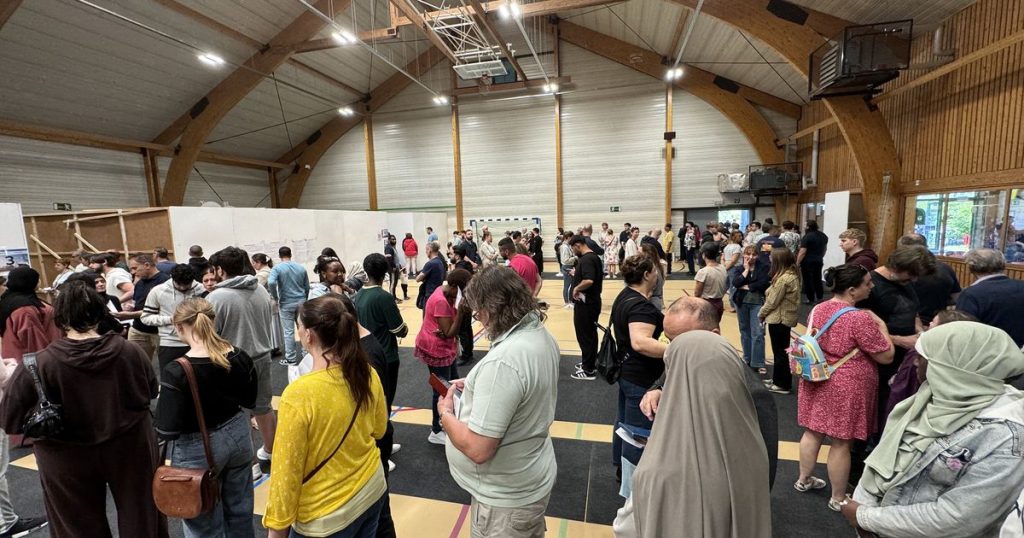The European Union parliamentary elections on Sunday revealed a rise in support for far-right parties, despite scandals in Germany. The exit poll in Germany showed the Alternative for Germany party gaining ground to 16.5%, surpassing the Social Democrats. Similar trends were seen in the Netherlands, where the party of Geert Wilders is in a close race with a Socialist-Green alliance. Overall, the elections are expected to shift the EU to the right, impacting its future trajectory. Important issues influencing voters include the war in Ukraine, migration, and climate policy’s impact on farmers.
Despite the rise of far-right parties, mainstream and pro-European parties are expected to retain their majority in parliament. However, they may lose seats to hard-right parties led by figures such as Italian Premier Giorgia Meloni, Hungarian leader Viktor Orbán, Geert Wilders in the Netherlands, and Marine Le Pen in France. This shift to the right could make it more challenging for the EU to pass legislation, potentially paralyzing decision-making in the trading bloc. Voter concerns about maintaining European unity and avoiding a further shift to the right were prevalent in countries like Germany.
European Union lawmakers play a crucial role in shaping policies on financial rules, climate, agriculture, and approving the EU budget. Issues such as the coronavirus pandemic, economic crises, energy shortages due to the Ukraine conflict, and national concerns have influenced voter behavior. Parties across Europe are contemplating their positions in continent-wide alliances following the elections, with potential shifts to more hard-right or ethno-nationalist coalitions. Political realignments within the European Parliament are expected, leading to uncertainty over future legislative decision-making and EU leadership appointments.
The period after the elections will involve political horse-trading as parties reassess their positions in parliamentary groups. Key questions remain around the alignment of parties like Brothers of Italy, Fidesz, and Alternative for Germany within the European Parliament. The composition of the European Commission, European Council, and EU foreign policy leadership positions is also up for contention. The uncertainty surrounding the makeup of the new assembly will become clearer as official results are released and alliances are formed in the coming days.
The election results reflect a broader trend of the rise of populism and far-right politics across Europe, with parties like Brothers of Italy, Fidesz, and Alternative for Germany gaining ground in multiple countries. The impact of these electoral shifts on EU decision-making and policy implementation remains a central concern for pro-European groups and officials. The composition of the new European Parliament will shape the bloc’s direction in key areas like security, migration, and climate policy. As European voters exercise their democratic rights, the future of the EU and its institutions hang in the balance.


